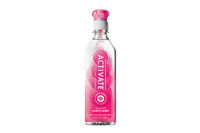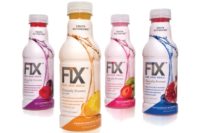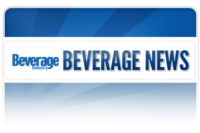In three years, nearly half of the U.S. population will be 50 years of age or older, and they will control 70 percent of disposable income in the country, according to a recent webinar titled “Aging well: How to win with the growing and lucrative segment of health-focused seniors,” hosted by Todd Hale, senior vice president of consumer and shopper insights for Nielsen, New York. Moreover, nearly one in five Americans will be 65 years of age or older by 2020, he said.
As consumers’ life spans continue to grow, they want to look and feel well for a longer period of time, notes Caroline Brons, director of marketing for DSM, Heerlen, the Netherlands.
Although baby boomers embrace the changes that come with aging, they also actively seek products that address these changes, adds Russ Hazen, premix and innovations manager for Fortitech Premixes by DSM, Schenectady, N.Y. For instance, products that help with heart health, bone and joint health, and skin health are of interest to them, he notes.
“We are living longer and are determined to look our best at any age,” Hazen says.
However, younger consumers also are seeking products to aid in beauty and anti-aging. Much of the interest comes from consumers in their mid-30s and older, because that’s typically the time when they begin to get concerned about the effects of aging, says Mai Nygaard, Peptan’s global product manager for Rousselot, Son, the Netherlands. This also is the time when they begin to lose collagen, adds Marlena Hidlay, associate marketing manager for DSM.
“Collagen loss does not begin until the mid-30s, but [collagen] can drop up to 40 percent between the ages of 35 and 55,” she notes.
Yet, in some countries, consumers in their 20s take an interest in beauty and anti-aging products in order to prevent the effects of aging, Rousselot’s Nygaard notes.
Beverages with beauty and anti-aging benefits are fairly established in Asia, but the U.S. market is still catching up, she says. Nevertheless, the segment is experiencing strong growth in the United States, she adds.
“We see pretty strong growth in ‘beauty from within’ products in general — beverage being one of those categories,” Nygaard notes.
The global nutricosmetics or “beauty from within” market is forecast to reach $4.24 billion by 2017, according to a Peptan brochure, which cites a 2011 Global Industry Analysts Inc. report. The San Jose, Calif.-based market research firm also predicts that the anti-aging segment of “beauty from within” will rise
4.8 percent through 2016, making it the second-largest area of interest in the category, DSM’s Hidlay notes.
Consumers particularly are seeking products that can smooth fine lines and wrinkles, protect against sun damage, and replace lost collagen, she says.
Ingredient offerings
Ingredients utilized to offer these functional beauty and anti-aging claims in nutricosmetic beverages typically include collagen, aloe vera, resveratrol, omega-3 fatty acids, vitamin E, lutein, lycopene, green tea extract and antioxidants, Fortitech’s Hazen notes.
In particular, collagen is a popular ingredient right now, DSM’s Hidlay says.
Rousselot specializes in natural, hydrolyzed, bioactive collagen peptides, which are branded under the Peptan name.
“Collagen is the most common protein in the body, and it’s really what is in your skin that creates the infrastructure, if you will, of the skin,” Rousselot’s Nygaard explains.
In fact, collagen comprises approximately 80 percent of skin’s dry mass, according to Gelita USA’s website. The Sergeant Bluff, Iowa-based company offers Verisol natural, bioactive collagen peptides, which are specially optimized for beauty applications, resulting in noticeably firmer and smoother skin with fewer wrinkles, it states.
Rousselot’s Nygaard adds that collagen peptides work by restructuring and rebuilding the skin’s collagen from within. Its Peptan collagen peptides are available in three different raw materials, made from fish skin, pig skin or bovine hide, and are backed by scientific studies, she notes. Its Peptan F fish-based collagen peptides are particularly popular for beauty drinks, she says.
Likewise, DSM offers a portfolio of clinically studied skin-nourishing ingredients, including antioxidant vitamins C and E, specialty nutraceuticals, customized beauty blends, omega-3 fatty acids, and carotenoids. In particular, its FloraGlo lutein is a plant-derived carotenoid that in clinical trials has been shown to increase skin hydration and elasticity, Brons says. Clinical data also has shown that omega-3 supplementation can help to reduce harmful byproducts that come as a result of UV light exposure, which is critical for maintaining skin health, adds Eric Ciappio, scientific leader for DSM.
Many of these ingredients also carry other functional benefits to aid the body as it ages, Fortitech’s Hazen says. “For example, collagen can help the joints; resveratrol, lycopene and omega-3s [can] help [the] cardiovascular system; lutein and other carotenoids can aid in the health of the eyes; aloe vera [and] collagen can help the elasticity of the skin; and antioxidants [can] help protect the body from free-radical damage produced by sun exposure or other factors,” he notes.
Getting into formulation
Because these beauty and anti-aging ingredients carry a functional benefit, sometimes they can impart bitter or astringent notes, Fortitech’s Hazen says. Therefore, supplementing a beverage with flavors like tea, citrus, chocolate, cranberry or pomegranate can help to integrate the functional ingredients into the formulation, because these flavors have similar bitter or astringent notes as the functional ingredients, he explains.
Similarly, juice drinks can be more forgiving when higher levels of functional ingredients are involved because of their higher flavor and acidity impacts, says Todd Katz, senior manager of technical marketing and applications for DSM.
Flavored and enhanced waters also offer a great delivery option, he says.
“This beverage category is typically mild in overall taste and moderately sweetened with caloric sweeteners that provide a clean finish,” Katz explains. “Water-soluble [or water]-dispersible vitamins and carotenoids added to beauty beverages can be easily incorporated into this matrix.”
Plus, functional waters that offer both hydration and nutrition complement the benefit of healthy skin, Brons adds.
Rousselot’s Nygaard notes that in Asia, its collagen peptides often are featured in collagen waters and beauty shots as well as juices, coconut waters, flavored waters and dairy-based drinks. She adds that the company’s Peptan collagen peptides are almost 100 percent neutral in terms of flavor, odor and color.
“It’s very neutral and easy to work with, but it’s also very stable, and it can be easily integrated into normal beverage processing no matter what the base is, so that gives many options for the formulators,” Nygaard explains.
In the U.S. market, collagen peptides commonly are found in shot-style drinks, but they are expanding into a broader range of formulations, she notes.
“Today it is definitely, in the Western world and in the U.S., more of a specialty drink or niche, but I believe that [it] will have a more mainstream focus, because as people realize the more broad appeal and also the fact that it’s so well proven scientifically, I think that people will adopt it also in their wider range of products and beverages as you go along,” Nygaard says.
She also points to beauty and anti-aging trends in Asia, noting that they could make their way to Western markets in the coming years.
DSM’s Hidlay affirms the beverage segment’s growth, saying: “We’ve seen an increase in beauty and anti-aging product launches across applications within the past few years. … Beauty beverages are still an emerging category in the U.S., and there is plenty of room for innovation.”





